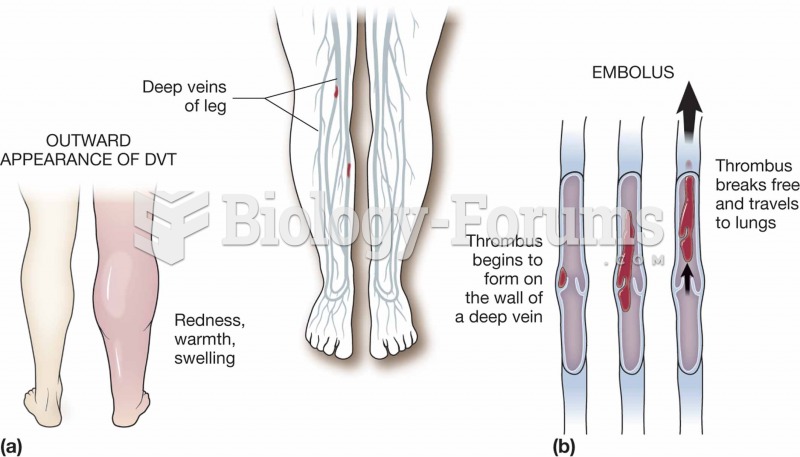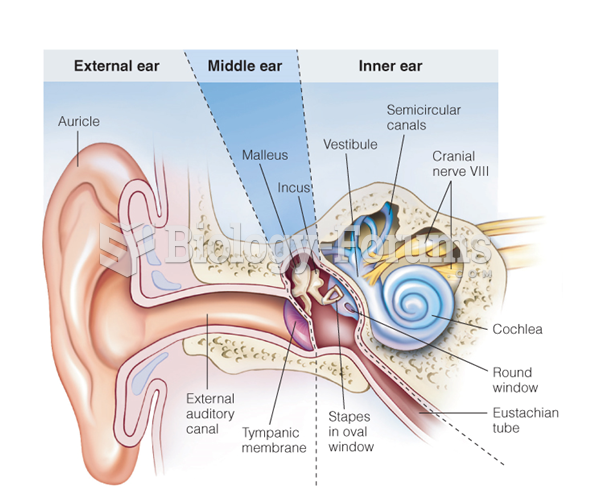|
|
|
Walt Disney helped combat malaria by making an animated film in 1943 called The Winged Scourge. This short film starred the seven dwarfs and taught children that mosquitos transmit malaria, which is a very bad disease. It advocated the killing of mosquitos to stop the disease.
The B-complex vitamins and vitamin C are not stored in the body and must be replaced each day.
Though newer “smart” infusion pumps are increasingly becoming more sophisticated, they cannot prevent all programming and administration errors. Health care professionals that use smart infusion pumps must still practice the rights of medication administration and have other professionals double-check all high-risk infusions.
Aspirin is the most widely used drug in the world. It has even been recognized as such by the Guinness Book of World Records.
Vaccines prevent between 2.5 and 4 million deaths every year.







